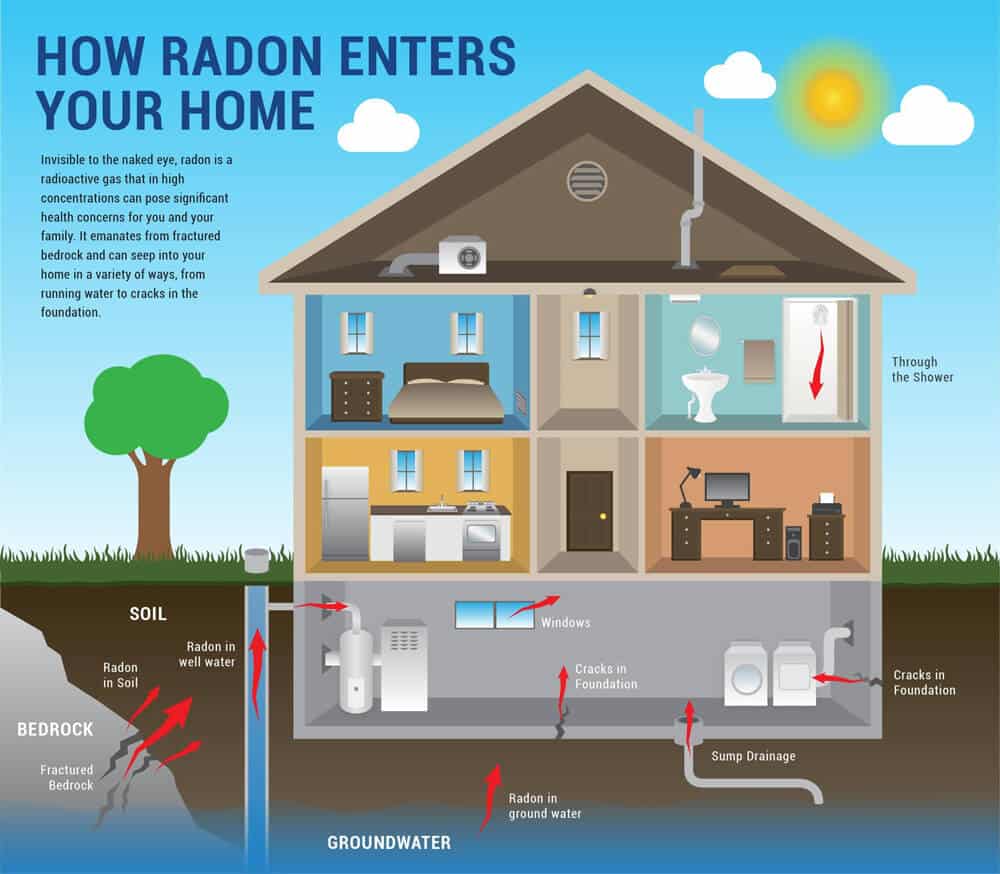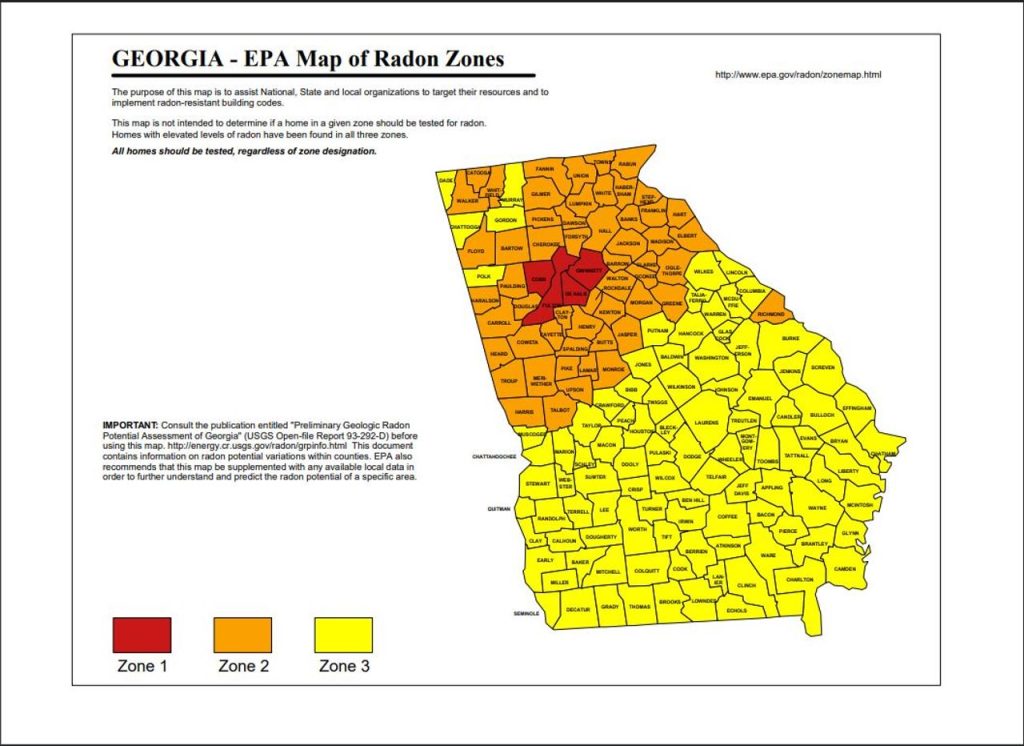
- Radon is an odorless, tasteless, naturally occurring radioactive gas that comes from the soil. It is produced when uranium decays and works its way up through the soil into the atmosphere. Granite rock, common in Georgia, can contain significant amounts of uranium.
- We require only the best certified radon testing equipment offered.
Your radon testing will use either Sun Nuclear or Radon Eye Pro continuous radon monitor depending on the testing situation. Both types of tests produce highly accurate, EPA certified test results

Is Radon A Problem in Your Home?
Testing your home is the only way to know. Every home has at least some levels of Radon gas. Radon enters a home through foundation cracks and cold joints, openings around plumbing pipes, and crawlspaces. Because Radon comes from the ground, lower levels of the house will often have the highest concentrations, however Radon is not only found in the basement. Radon is pulled throughout the whole house due to the natural rise of air in the home, often referred to as the “stack effect.” Winter months and cold weather create the strongest stack effect and therefore the highest Radon levels in all parts of the home.
Any home can have a radon problem – whether new or old, small or large, drafty or not. Because Radon is both colorless and odorless, it can only be detected by testing with special equipment. Radon test kits can be set up quickly and only need to run for 2 days to get accurate results.
Why should I be concerned about radon?
Radon causes more deaths each year in the U.S. than drunk drivers. It is the second leading cause of lung cancer and the leading cause of lung cancer in non-smokers. Radon kills 22,000 people every year in the U.S.; 800 of those will be in Georgia. The Surgeon General has issued a health advisory concerning radon exposure, stating that all U.S. homes should be tested for radon and fixed if the level is high. There is no acceptable, safe level of radon. As you breathe, radon and radon decay products enter your lungs. These substances release small bursts of energy that can permanently damage lung tissue DNA, and lead to lung cancer. People all over Georgia should be concerned about radon and test their homes. Outdoors, radon is quickly diluted by the atmosphere and poses no problem. But if radon seeps into your home from soil beneath your home, it could build to hazardous levels in the relatively stagnant air in your home’s living space.
